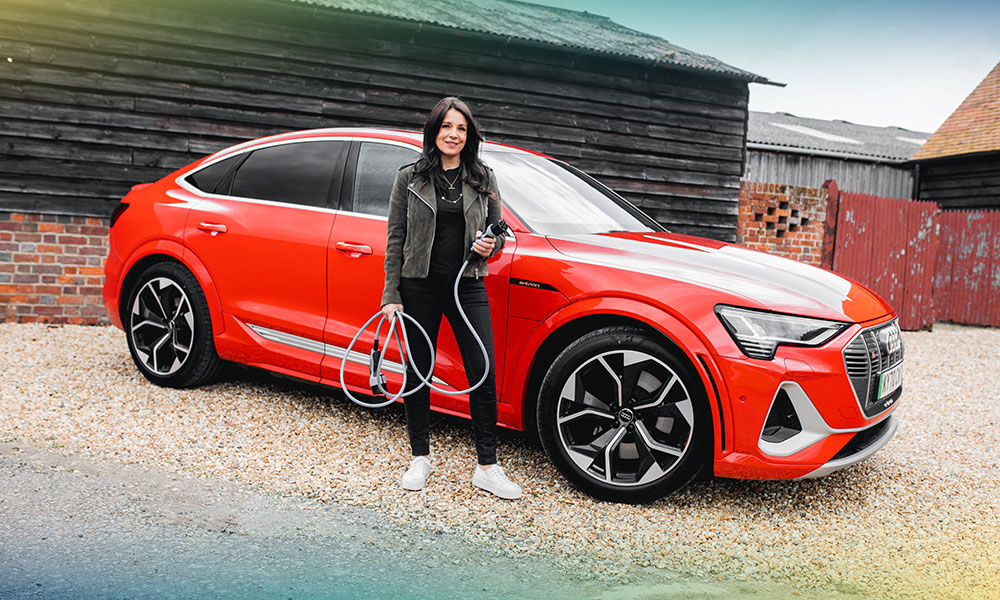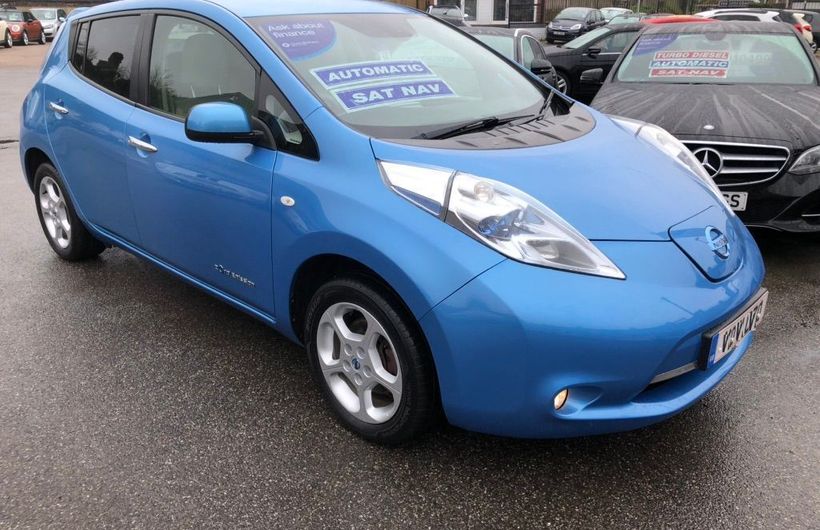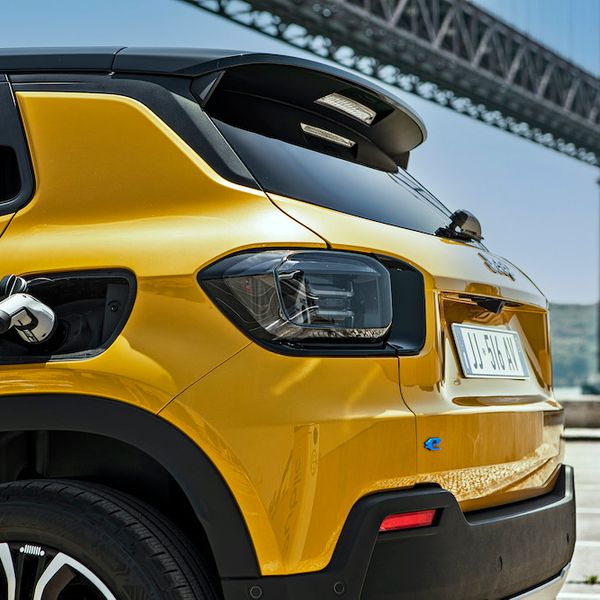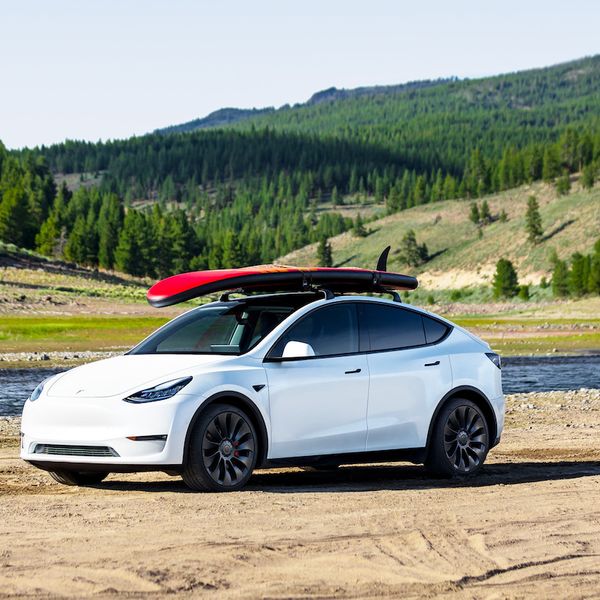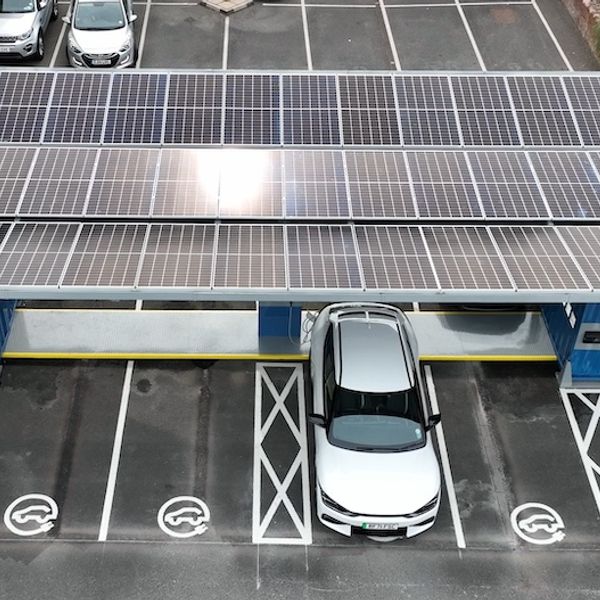“If I had asked people what they wanted, they would have said faster horses.” This well-known adage is usually ascribed to Henry Ford, but in fact it appears there’s little truth to the claim.
There is value though, as we look ahead to a future where the electric car has replaced petrol and diesel cars, in looking back to Ford’s time, when the thought of a transition from horses to cars filled people with fear. In 1875, a US congressman distilled the mood of his nation when he claimed the “dangers are obvious” when it came to horseless carriages.
In England, the Red Flag Act was passed that required all self-propelled vehicles to be led at walking pace by someone waving a red flag. Even when it was repealed, the speed of automobiles were limited because of concerns about their safety. While we’ve greatly improved road safety since, one issue remains.
![Henry Ford and a Model T]() Henry Ford faced resistance when he tried to replace the horse
Henry Ford faced resistance when he tried to replace the horse The same US congressman in 1875 finished his argument by saying the “menace to our people of vehicles of this type…poisoning the atmosphere would call for prompt legislative action”.
Well, some 146 years and a short hop across the Atlantic later and we have made just that legislative action.
As we accelerate towards net zero emissions by 2050, and as host of COP26, we know that tackling climate change will make us all healthier too. Last November, we announced we’re bringing forward the phase-out of new petrol and diesel cars to 2030, and allowing high-performing hybrids until 2035. After those two points we expect all new vehicles on the road to be zero emission at the tailpipe.
![Land Rover Discovery 4 exhaust tailpipe]() Tailpipes - exhausted by 2035
Tailpipes - exhausted by 2035 This zero-emission future will need a world-leading electric vehicle charging network, but I know drivers aren’t just going to make the switch without help from us in Government and the wider industry.
So while it's vital that we’re investing up to £2.8 billion in driving the switch to electric vehicles, the release of today’s survey highlights the bumps in the road that remain.
Much like the switch from horses, success will of course depend on reassuring the public that they can afford the new technology. That’s why we’ve already given £1.3bn out in plug-in grants to make electric vehicles more affordable.
Just recently, we’ve also updated the scheme to target less expensive models and reflect the greater range of affordable vehicles available.
![MG 5 EV estate electric car exterior front driving in woods]() Plug in car grants have shifted to make affordable cars more affordable
Plug in car grants have shifted to make affordable cars more affordable These measures are in addition to our generous tax incentives, including favourable company car tax rates, which can offer savings of over £2,000 a year for drivers switching from a medium-sized petrol or diesel to a zero-emission car.
Alongside this, there’s a rapidly growing second-hand car market with more than 130 fully or part electric vehicles available to buy or lease in the UK.
Another key point to take from the survey is that people need to trust that the infrastructure will deliver for their needs. I’m passionate that range anxiety must soon become a thing of the past. So while it’s great that currently a driver is never more than 25 miles away from a rapid chargepoint anywhere along England’s motorways and major A roads - we want to go further, literally.
![Blue used Nissan Leaf for sale]() The market for used electric cars is booming
The market for used electric cars is booming That’s why we’ve announced £1.3 billion to support the very latest EV charging infrastructure with £950 million of that going to fully futureproof the electricity network at motorway and major A road service areas, with the target of at least six ultra-rapid chargepoints per motorway service area by 2023.
We’ve also opened up the workplace chargepoint scheme so that B&Bs and other small accommodation providers can benefit from the funding. This will mean you can stop and charge for the night at more places across the country. Critically, I know people want to be able to recharge as easily as they refuel.
![bp pulse fast electric vehicle charging hub]() Motorway service areas will have at least six ultra-rapid charge points by 2023
Motorway service areas will have at least six ultra-rapid charge points by 2023 This means the days of visiting petrol stations to fill up at the pump are numbered, with state-of-the-art charging stations very much the future.
On top of this, there are some added benefits to charging at home that petrol pumps could never match. So as we roll-out more and more home chargepoints, you’ll never have to remember to fill-up on your way somewhere, as your vehicle will charge while you sleep.
Just as the horseless carriage eventually became the norm, the zero-emission vehicle will go the same way too.
About Rachel Maclean MP
Rachel Maclean MP represents the constituency of Redditch in Worcestershire, England and was appointed by Prime Minister Boris Johnson to serve as Parliamentary Under Secretary of State at the Department for Transport in February 2020.
Among other transport-related matters, she has responsibility for the future of transport and the environment - including decarbonising emissions and the 2030 ban on the sale of new petrol and diesel cars. Rachel is an electric car owner.
 Henry Ford faced resistance when he tried to replace the horse
Henry Ford faced resistance when he tried to replace the horse 








